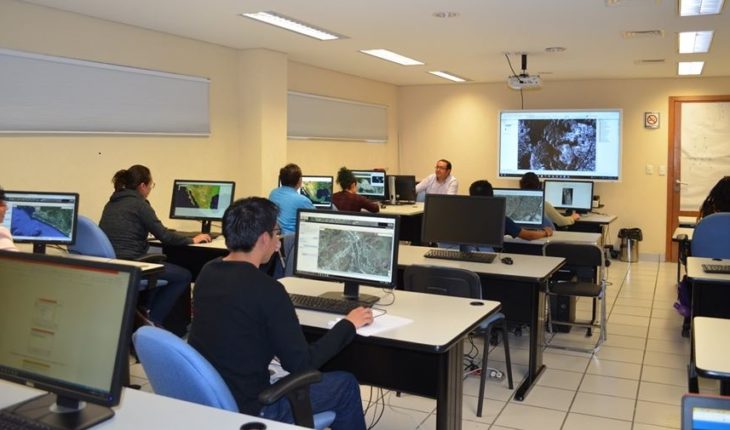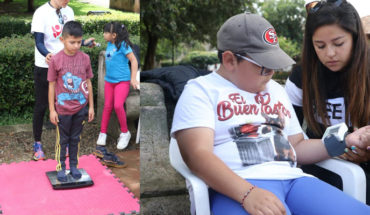Flor was excited about her research project—scientifically evaluating the traditional diet of the Southeast region for use in disease prevention—because she had just traveled to Mexico City for laboratory tests she can’t do in Chiapas, where she works.
But it all fell apart when due to technical failures in the platform of the National Council of Science and Technology (Conacyt) failed to present its annual assessment, and without a review of the problem, she was dismissed from the Chairs program.
Find out: Conacyt promises that no research center will collapse; reorganize expenses
His case is not the only one: he claims that 10 researchers are in the same situation, from universities in Chiapas, Quintana Roo, Puebla, Michoacán, Zacatecas, Chihuahua, Sonora, State of Mexico and Mexico City, although only seven have come together to file a formal complaint.
Conacyt, for its part, claims that they broke the regulations and that it is false that a technical error occurred.
Last September, the more than 300 members of the Chairs program had two weeks to submit an annual report of their work, accompanied by tests such as collaboration agreements, certificates of students to which they took, course certificates.
Scientists have to meet high standards such as belonging to the National System of Researchers (SNI), making scientific publications, organizing events, contributing to the development of science or forming new talents, and are evaluated annually with a rating of 0 to 5.
The regulations say that if two reviews come back negative, they’re taken off their seats. But even if they are unhappy with their results, they are entitled to a review. A right they didn’t even give to the investigators affected this year.
Flor (the names were changed for confidentiality of cases) had been a professor at the College of the Southern Frontier (Ecosur), in San Cristobal de las Casas, with an indefinite contract for 10 years.
Returning from her work trip to Mexico City and after caring for her young daughter, she set out to complete the process of submitting her documents for evaluation.
It was Friday, September 13, the last day, and I didn’t know the Conacyt platform was flawed. I was also used to the internet having problems in San Cristobal. He attached all the files he needed, but they never finished loading.
Something similar happened to Mayra, hired as a professor at the Instituto Tecnológico de Cancun, in Quintana Roo, with a tourism and sustainability project in the Mexican Caribbean. I was very pleased that this year had achieved more than the previous ones, as it finally started two master’s and doctoral plans, so it took pains to prepare a thick folder to suit it better than in previous evaluations. I had it ready on the last day, but when you tried to upload it to the system, the page marked error.
He called Conacyt’s service but no one answered; he kept trying on the page, with the same result, and eventually sent emails to the Chairs address and his academic link, with his documents and screenshots of the red dot indicating the error from before the time to load the documents, trying to have it taken into account by this route, by demonstrating that he was sending in time but the problem was technical.
Flor also immediately sent emails to the Conacyt and explained the situation to his academic liaison, which he told him not to worry, because it had already happened on some other occasion and would surely only receive a warning. Mayra was also told that it would be a failure to the rules and would be considered by the Evaluation Committee.
The surprise of both researchers was that a month later, they suddenly did not have access to their institutional mail, and by November 1 they realized that they had no longer received payment for their fortnight.
Without formal notification, they were fired from the program.
Truncated projects
Mayra had been working at the Instituto Tecnológico in Cancun for 5 years, where she was sent by the program, although she did her PhD in Mexico City. Flor also came from finishing his training in genetics and molecular biology in the capital.
One of the objectives of the Chairs program was to decentralize research, and to encourage high-level scientists to go to the states. This mechanism was created in 2014 to offer places to young researchers and prevent brain drain, as there were no places for them, so the standard for under-40s was opened.
At the beginning of the new government, the director of the Conacyt, María Elena Alvarez-Buylla, had criticized this program of the six-year term, declaring that there were “hanged on the payroll”. But soon after he said they were looking for a way to improve it, and in March announced that 99 seats were opening.
The academics interviewed have doubts about whether this program will continue, and as for now there is no open call, they doubt that they can regain their place if there is no review to their cases.
As a sign of their commitment to their schools and research projects, and hopeful that it would be solved, they continued to teach until last December without receivability, so as not to leave half the semester.
But now, it’s not just your research projects that are truncated.
Mayra was advising seven students for bachelor’s or master’s degrees; the Doctoral Program of Environmental Sciences, which would start in August together with the University of Chetumal, will have to quickly seek an academic with a doctorate to give classes, since to belong to the National Postgraduate Padrón they have to have a certain number of professors of this level, and who belong to the SNI.
Flor leaves a nutritious research on how consuming plants, fungi, insects and traditional dishes, such as chipilín tamal, can form a diet that reduces glucose and helps people with diabetes improve their health.
Researchers have tried to continue to insist with the Deputy Director of Evaluation and Follow-up of Chairs of the Conacyt, Diego Axel, that the positions they occupied be reconsidered.
This is not the first time scientists have denounced a Conacyt technical glitch leaving them out of their research projects. He spent last semester with postdoctoral students abroad, when for a change in the computer system there was no room to upload a document, but only a later note asking to upload it along with another. In November, the agency acknowledged the error and agreed to re-receive the scholarship applications and now evaluate the projects.
Animal Político asked Conacyt to know what was happening on this occasion and this was his answer:
“With regard to the subject of the seven cases of Professors Conacyt who had their contract terminated, we state that it is totally false that the platform did not serve, as has been said in various media and social networks with the intention of misinforming the public.
The Conacyt Chairs program has more than 1,300 members, seven of whom failed to comply with the regulations that require them to submit their reports in a timely manner. They didn’t. They did not submit their reports and their contracts clearly specify that if they fail to meet that requirement, those contracts are cancelled. It should be noted that the Conacyt notified them, in advance and several times, that the due date was approaching. Some of the excategortics have approached the Conacyt and a dialogue has been established with them, which is still in process.”
Affected scientists expect the value of the projects they were developing to be weighed and the unit reconsiders their situation, as overnight research is left in half and they, despite their high academic level, stay on the street.
What we do in Animal Político requires professional journalists, teamwork, dialogue with readers and something very important: independence. You can help us keep going. Be part of the team.
Subscribe to Animal Politician, receive benefits and support free journalism.#YoSoyAnimal





